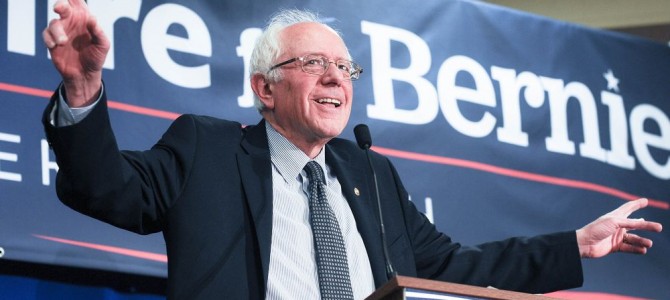On Thursday nearly every media outlet in the country proclaimed that Donald Trump had “clinched” the GOP nomination. It was an odd proclamation, as no delegates had been allocated since the Washington primary two days earlier.
Reporters from the Associated Press, CNN, CBS, et al. had called several unbound delegates (mostly from Pennsylvania, Colorado, and North Dakota) and asked if they’ll vote for Trump. These reporters got enough former Ted Cruz delegates to say “Yeah, I suppose, ya know, Trump is like, the only guy still running” to push Trump past the magic number of 1,237 delegates, and thus the media manufactured this headline.
But this isn’t “clinching” by any meaningful definition of the word. These unbound delegates are still, by definition, unbound. They could change their mind at any point between now and the time ballots are cast at the Republican National Convention in Cleveland this July. If Cruz decided that just for the free media time he wanted his name placed in nomination at the convention it would probably take just a few five-minute phone calls to flip several of these delegates back to his support so he could meet the eight-state threshold.
Trump will clinch the nomination. It has been obvious since Cruz suspended his campaign that Trump would secure on June 7 (when several states hold the final primaries) well more than enough bound delegates to win the nomination. That’s why Trump has been called the presumptive nominee for almost a month now. But nothing has really changed since then, and certainly the nomination was no more “clinched” on Thursday than it was on Wednesday.
This Is All About Democrats
So why has the media manufactured and trumpeted this headline? The answer to that lies on the other side of the aisle. The Democrats have far more unbound delegates than Republicans do, and with typical leftist pretension they call them “superdelegates.” These superdelegates are currently telling the media they are overwhelmingly (541 to 43) favoring Hillary Clinton over Bernie Sanders. They are responsible for the bulk of Clinton’s lead over Sanders in the media’s delegate count.
In bound delegates earned through the primaries, the Sanders campaign is so close to Clinton that, as David Byler reports at Real Clear Politics:
Clinton probably won’t clinch without superdelegates. With superdelegates in her current total of 2,305, Clinton is less than 100 away from the 2,383 threshold, but take away the superdelegates and she is 615 short – which presents a bigger hurdle to climb. The former secretary of state would need an enormous share of the almost 800 remaining pledged delegates to clinch the nomination without superdelegate support. Democrats allocate delegates proportionally, so she would need roughly three-quarters of the votes cast in the remaining contests. Current polling in California and New Jersey suggests she won’t come close to that level.
Sanders is very likely to achieve what Cruz realized he could not after his devastating loss in Indiana. Namely, Sanders is likely to make it through the primaries with enough delegates that the nomination will ultimately be decided by the Democrat Party’s unbound “superdelegates.” Since party rules allow these superdelegates to change their mind at any point up until the ballots are actually cast at the Democratic National Convention, neither Bernie nor Hillary can really “clinch” the nomination until the convention itself.
This means that, while Hillary may be widely expected to win, the Democrat convention will be contested unless Bernie decides he doesn’t want it to be. This, obviously, looks like a catastrophe to the Clinton-loving media executives, so it becomes imperative to convince Bernie and his supporters to drop out once the primaries are over on June 7 (if not before).
That is why the media last week changed the definition of “clinching” the nomination to include winning the support of delegates who are actually free to change their minds at any point up to and including the convention itself. It makes no difference to the Trump campaign whether it is reported that they “clinched” the nomination last Thursday with the support of unbound delegates or whether it is reported on June 7 when they actually clinch with bound delegates.
But it makes all the difference in the world to the Clinton campaign whether the headlines on June 7 report that she has “clinched” the nomination or whether they tell the truth that the Democrat race will continue until ballots are cast at their national convention.









